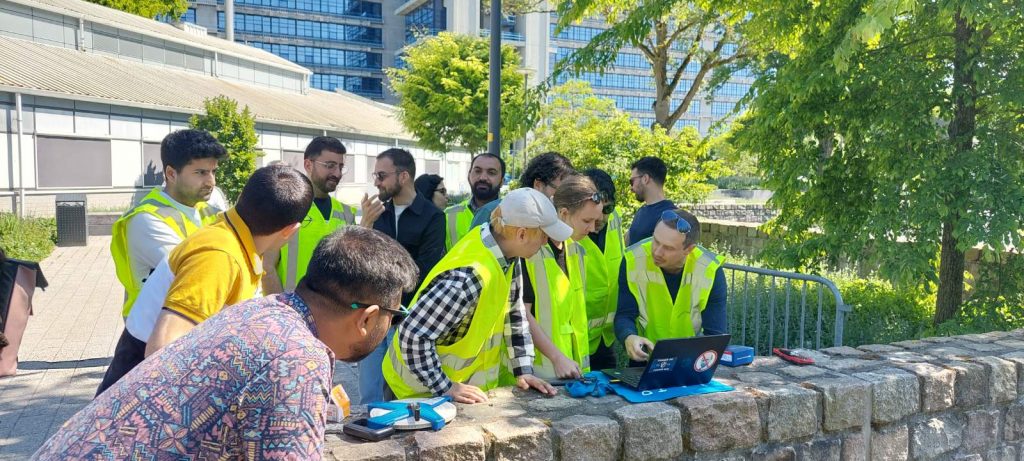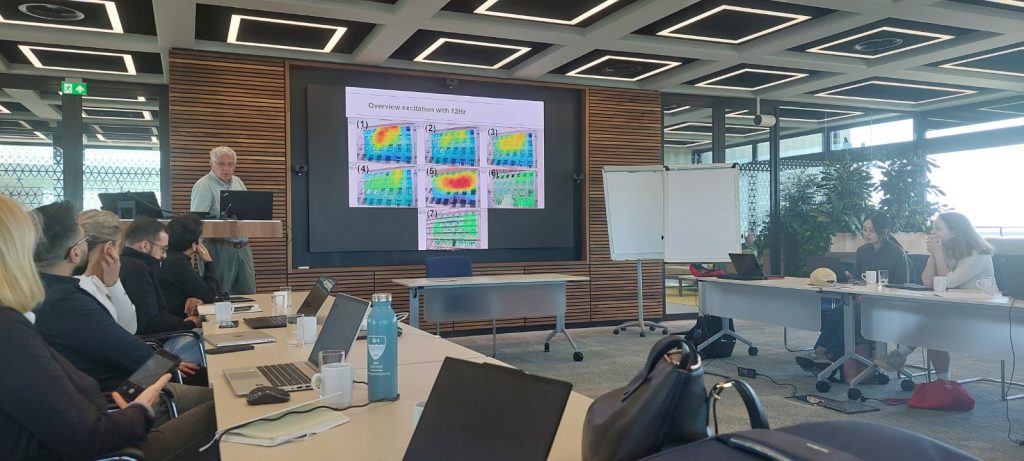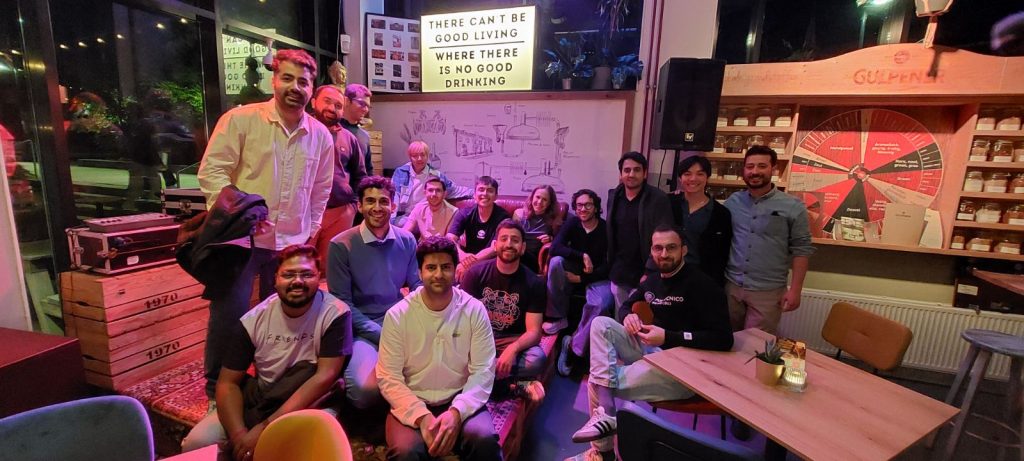May 2025 – 1st BRIDGITISE Training School at the University of Twente
The first BRIDGITISE Training School took place from 12–16 May 2025 at the University of Twente, bringing together PhD candidates, top academics, and industry professionals for a focused week of learning, hands-on work, and team-building.
Programme Overview
The school featured a mix of guest lectures, consortium-led sessions, and collaborative group work aimed at bridging the gap between research and practice in the field of bridge management and innovation.
Guest Lectures:
- Agnieszka Bigaj-van Vliet (TNO) on standardizing bridge management practices.
- Helmut Wenzel (VCE) on current industry approaches and the objectives of BRIDGITISE.
- Giel Klanker (Antea Group) on digital transformation in bridge asset management.
Consortium Lectures:
- Maria Pina Limongelli and Pier Francesco Giordano (Politecnico di Milano) — Mobile Crowdsensing and IoT: Discussed vibration-based monitoring techniques and real-world sensor applications for damage detection.
- Florian Scheidegger (IBM Research Europe) and Michele Magno (ETH Zürich) — Computer Vision for Visual Inspections: Presented AI models for visual bridge inspection, including model comparisons and challenges.
- Nicola Cordeschi (Politecnico di Bari) and Paolo Comi (Exprivia) — Digitalization of Bridges: Introduced smart monitoring frameworks, combining IoT, AI, and 6G for real-time bridge assessments.
- Fred Westenberg and Rolands Kromanis (University of Twente) — Augmented Reality for Bridge Assessment: Demonstrated the use of AR tools to support remote inspections and enhanced on-site data interpretation.
- Irina Stipanović and Andreas Hartmann (University of Twente) — Circular Life Cycle Management: Explored the use of BIM and CAT tools for sustainable bridge design, maintenance, and reuse strategies.
Case Study: Real-World Application
One of the highlights was a hands-on group project involving a 27-metre steel girder bridge located on the University of Twente campus. The bridge, primarily used by pedestrians and cyclists, is equipped with advanced SHM systems. Participants collected, processed, and analyzed structural data to propose management and maintenance strategies. The case study was facilitated by Dr. Rolands Kromanis.
Team Building and Social Activities
To encourage collaboration and interaction beyond the classroom, several social activities were organised. Participants explored Amsterdam, went cycling in the Enschede countryside, played football, and visited local arcades—fostering connections among researchers from across Europe.
Best Group Award
The week concluded with presentations of the case study outcomes. An award was given to the top-performing group based on their approach, results, and presentation. Congratulations to Elie, Liv, Qing-Chen, Mohsen, and Tommaso on their well-deserved recognition.







